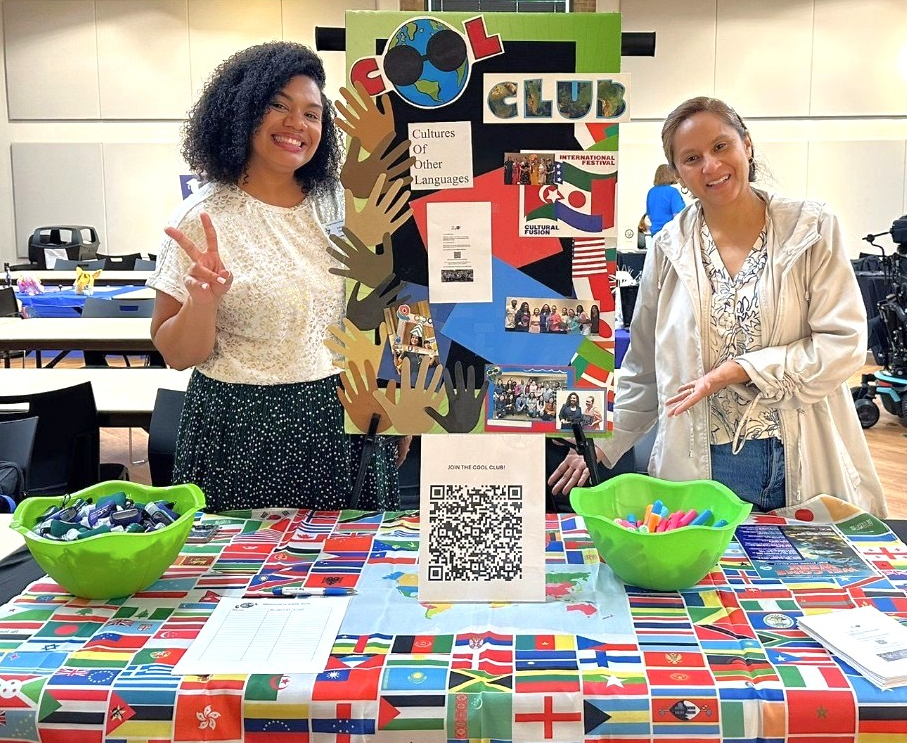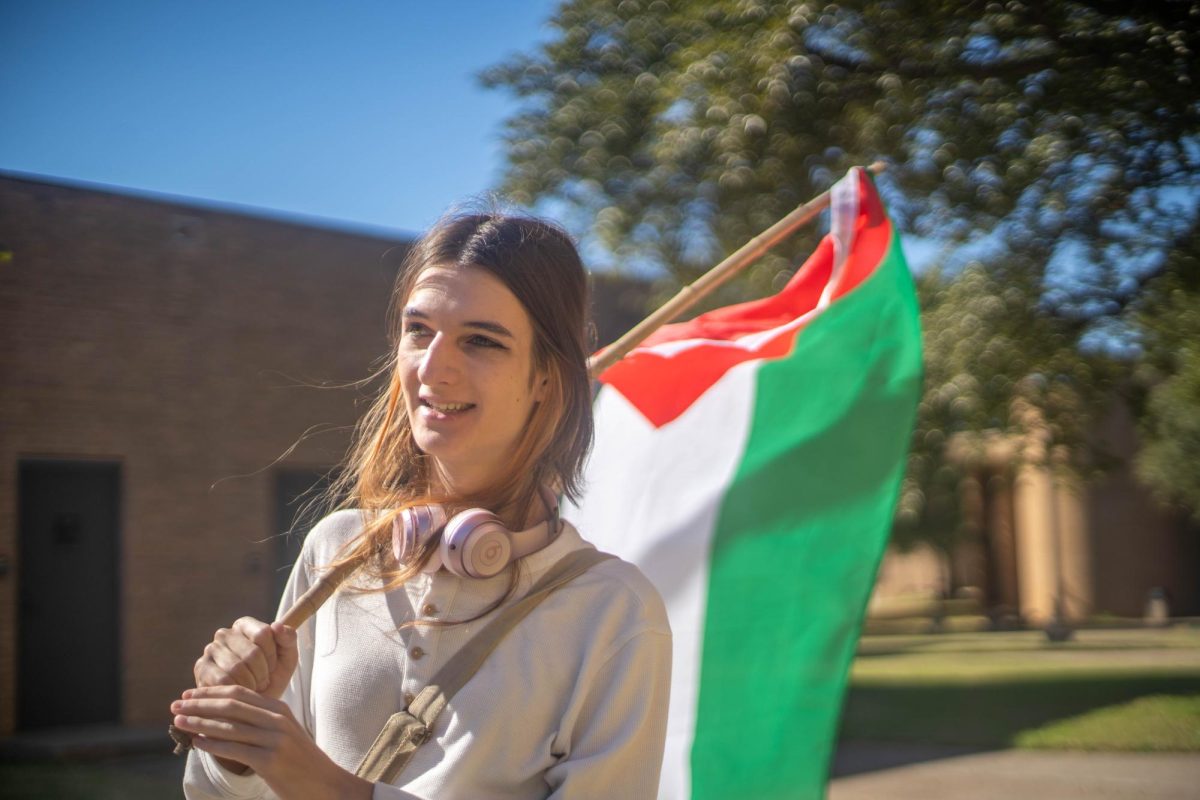NE students learned about gardening, caring for the planet and creating a greener lifestyle during the Earth Day Spring Fest on April 22.
Austin McCabe, who works at NE Student Activities and is the adviser of the Garden Club, said being sustainable is to be aware of waste.
“I really think it just means being mindful about how much we’re creating, how much we’re consuming and how much we’re throwing away, and looking for places to limit what is wasted,” McCabe said.
The Garden Club found ways to recycle plastic cups and coffee sleeves to create planters for the plants they sold at the event. Many of the plants are friendly to local pollinators. Pollinators, like bees and bats, are disappearing and dying. According to the U.S. Department of Agriculture, pollinators that are unable to find the correct quantity and quality of food will not survive.

Habitat loss is one of the leading factors in the decrease in pollinators, according to the USDA. Planting the correct type of flowers, fruits and vegetables can help ensure pollinators return to the area. Another way to preserve their natural habitat is by composting, which not only helps pollinators but also helps keep waste out of landfills.
“If the bees disappear, we no longer exist,” said Bob Lundin, a master gardener who works with Texas A&M’s AgriLife Extension. “They pollinate 90% of everything that we eat.”
According to the United States Environmental Protection Agency, composting is the biological decomposition of organic materials by microorganisms. Organic materials include grass clippings, leaves and food scraps.

According to the U.S. EPA, wasted food is the most common material sent to landfills. Wasted food is responsible for almost 60% of landfill methane emissions. Composting puts nutrients back into the soil and can help promote plant growth.
NE student Emma Fuentes has implemented composting in her daily life.
“I’ve just been putting leftover fruits and vegetables in the flower garden my mom has, so it can help them grow,” she said.
Living a sustainable lifestyle is not difficult, but it takes intent, McCabe said. She mentioned that while a sustainable option might cost more at first, in the long run, it is cheaper than buying single-use products.
TCC is working on ways to create a more sustainable campus. According to the school website, they have created a threephase plan to protect the environment. TCC is currently in phase one, which includes being transparent in their efforts and trying to reduce their greenhouse gas emissions by 10% by the year 2030.
“I think everybody has to determine what they’re willing to do. What they’re willing to change, what they’re willing to try that could have an impact,” McCabe said. “Every little bit helps.”



































